'I have nothing to go back to' - LA fires heartbreak
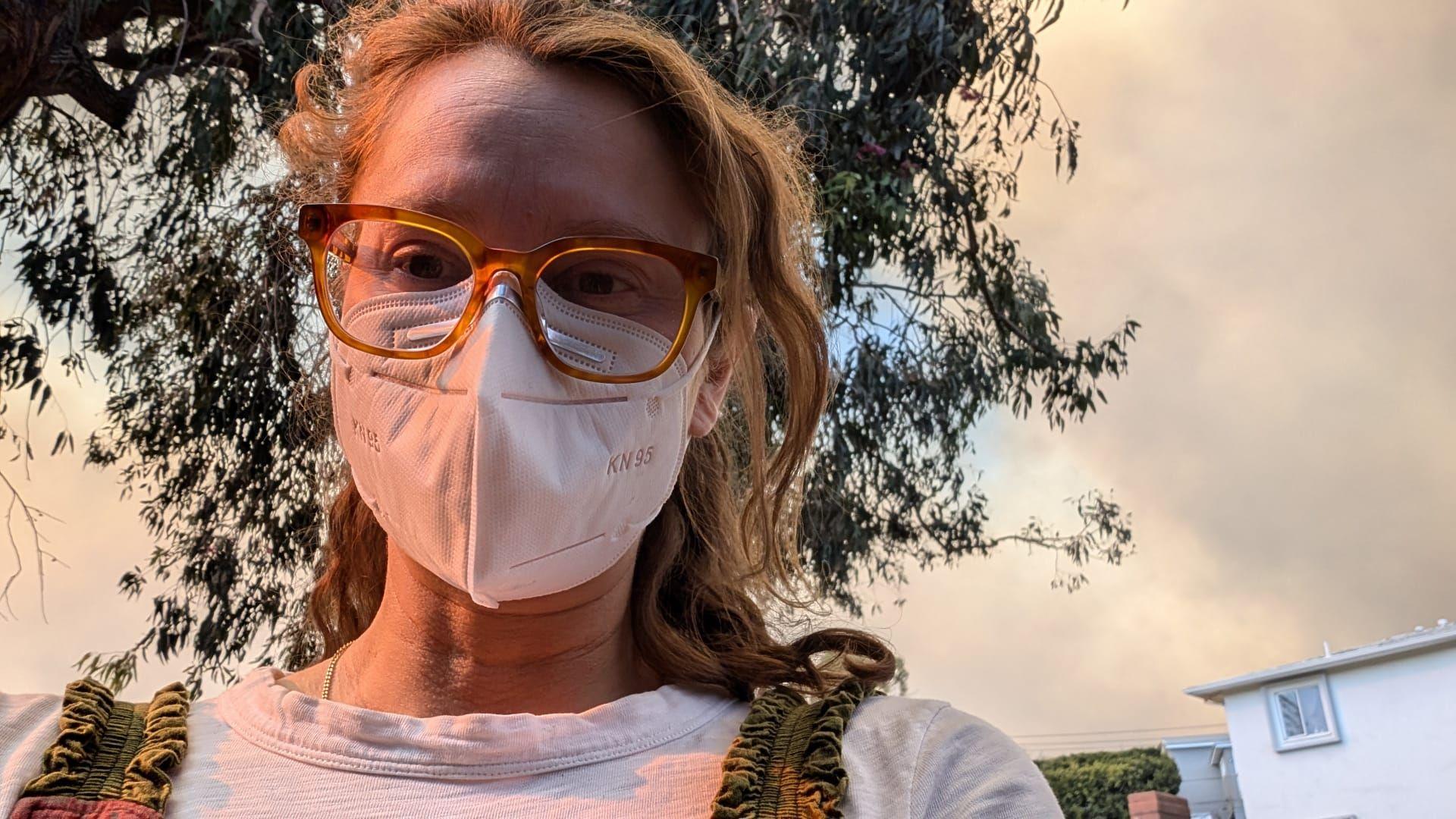
Lucy Sherriff fled the Palisades and returned to find her home destroyed
- Published
It's been four days since Los Angeles became an inferno - and my home became a pile of smouldering embers.
I'm now staying at a friend's house in La Crescenta, north of the city, after evacuating my condo in the Palisades, 30 miles (48km) away from where the fires first started on Tuesday morning.
I thought we'd be safe here, but with six active fires now burning across the city, nowhere feels safe. So far, LA's fires have forced more than 179,000 people including myself to evacuate.
Many people I know thought they had found refuge, only to have to flee again.
We've had our bags packed by the door, just in case we were ordered to leave for the second time in 48 hours.
On Thursday afternoon, the moment we were dreading happened - we got an emergency evacuation notice.
We panicked, and ran to load the cars again. I checked my car - low on gas - and sent my partner out to find some. He had to drive to four different stations before he found one with any supply.
The alarm, it turned out, was false, a mistake that rattled America's second-largest city, which was already on edge.
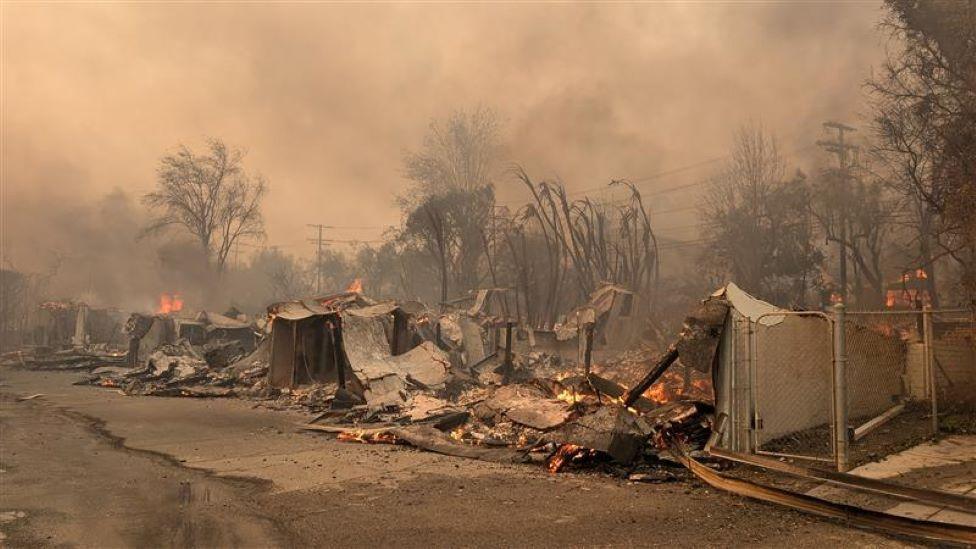
The smouldering remains of Lucy Sherriff's home
As a climate reporter, I am used to covering extreme weather events. Just a few weeks ago I was interviewing residents who had fled the Malibu fires. Now I'm on the other side of the story.
The Palisades Fire has already been dubbed a historic wildfire. And it will forever be burnished in my memory because it's the wildfire that burned down my community and my home.
It began on the morning of 7 January. Small flames on the Santa Monica mountain-side that I could see from the Palisades Village. I watched it for a short while, the smoke stretching across the clear blue sky. Locals were taking photos of it.
An hour later, the flames had jumped across the ridgelines and descended down the mountain. I watched as the fire began to engulf homes and smoke billowed across the sky.
I was already extremely concerned about the Santa Ana wind warnings we'd received two days prior – up to 80mph (129km/h) wind gusts were forecast. Those, and the lack of rain we'd had made ideal conditions for a fire to spread quickly and intensely.
I felt how quickly the wind was changing, blowing embers and smoke across the town. And I could see the fire spreading, jumping from spot to spot so that it was soon surrounding the Palisades.
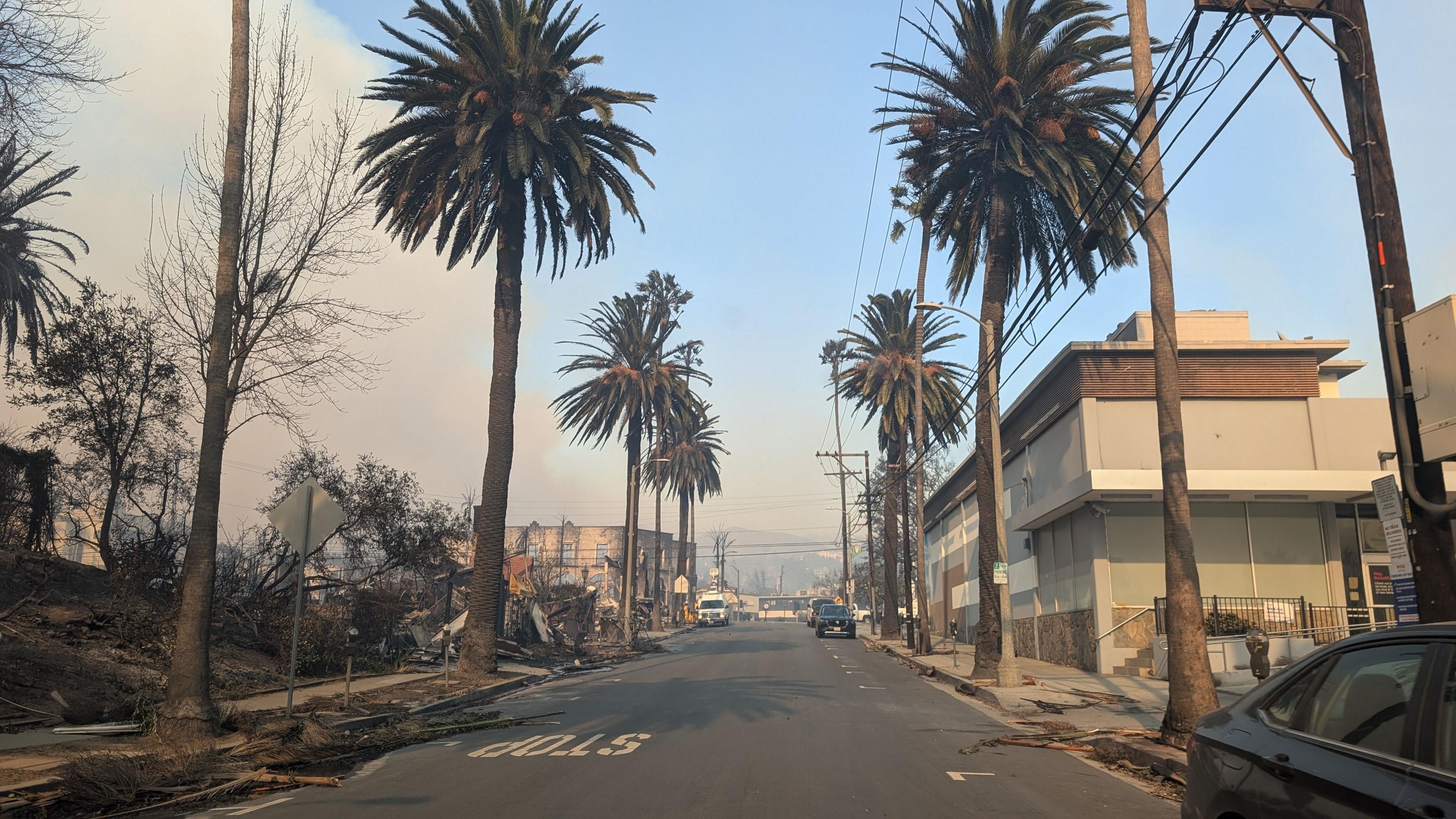
Burned out buildings line the streets of Lucy Sherriff's neighbourhood
The scene was truly apocalyptic - a bright red Sun cast an orange glow over us, and ash rained down like snow.
I ran back home and started making plans if I needed to evacuate. There didn't feel much point in leaving right at that moment because the one road out, Sunset Blvd, was gridlocked.
I packed the important stuff first - passports, birth certificates - and then when I felt I had a bit more time, I hosed down the front of the house, hoping the water would keep my condo, one of several terraced buildings in a small development, from succumbing to the fire.
I finally decided to leave when we were told there was a mandatory evacuation order for the entirety of the Palisades. I was also getting more concerned as the fire had spread to the mountains directly in front of my house, and I had heard the winds were only going to get stronger going into the evening.
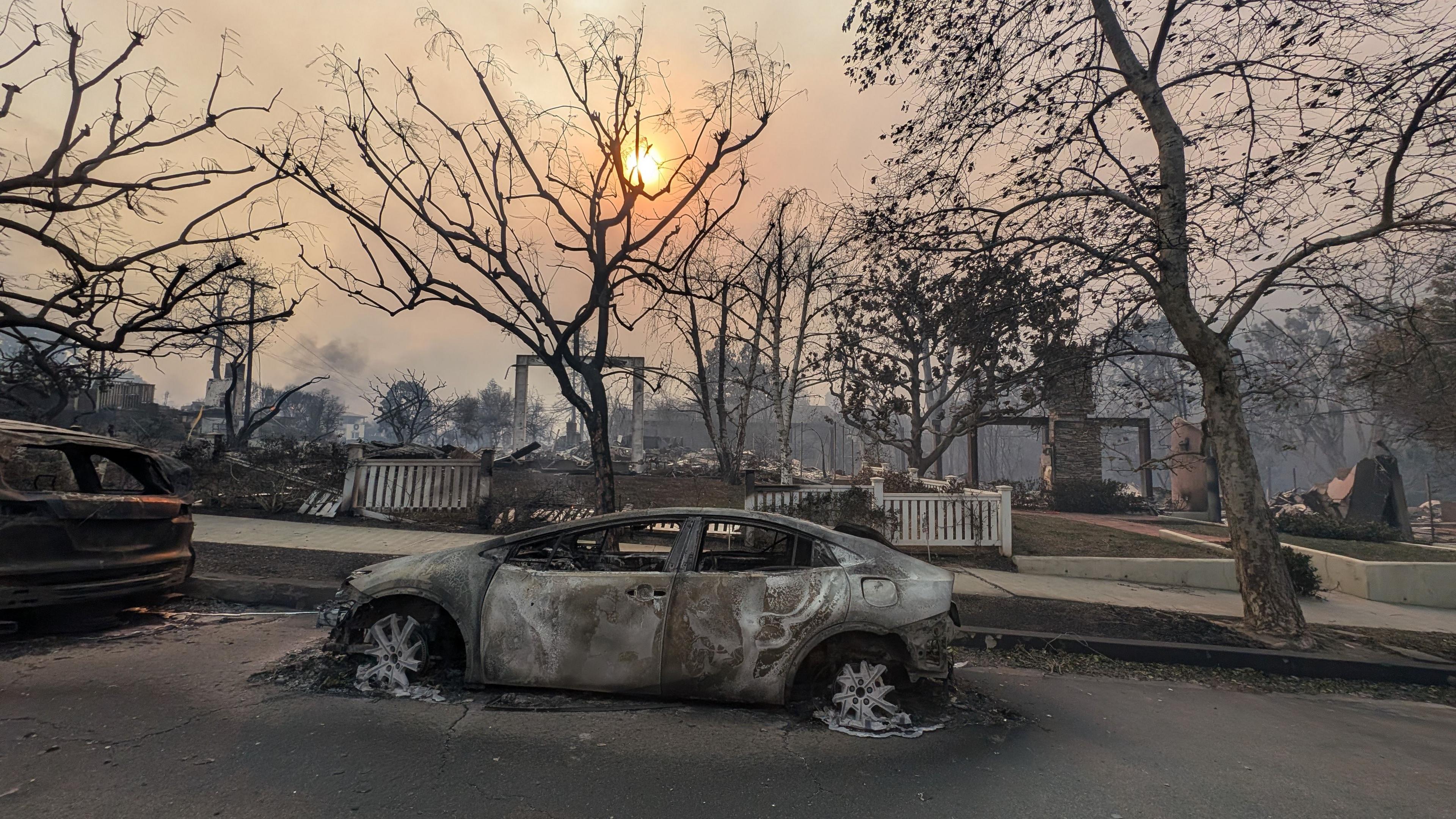
I never received a message about any evacuations or fire warnings on that first terrible day and nor did my partner. I was informed by neighbours.
I'm lucky I have a press pass and I could approach emergency services to find out what news I could. I'm so grateful that everyone I know managed to get out on time. A lot of us didn't realise how close the flames were to our homes, due to the lack of communication and information available.
It took a while to get out. There were thousands of cars trying to leave, all desperate to flee the flames. The frustration and fear was palpable.
I thought my home would be safe as it sits on the other side of Sunset Blvd, across from the mountains. I didn't think the fire would jump the road.
But when I got a text from a neighbour to say she saw Palisades High School on fire as she was evacuating, I knew that the fire was spreading further than anyone could have predicted. I had been watching the news - it was hard to look away - and it has been heartbreaking to see the school in flames, as well as some of our cultural landmarks, such as our local theatre.
Knowing that the wind speeds were only going to pick up as night fell, and it's much harder to fight a fire in the dark, I realised in that moment that my home might not make it. It was a sobering thought that I might be six months pregnant and homeless.
We arrived in La Crescenta on Tuesday evening. The next morning I received the news from a neighbour that our house had made it through the night. I cried with relief.
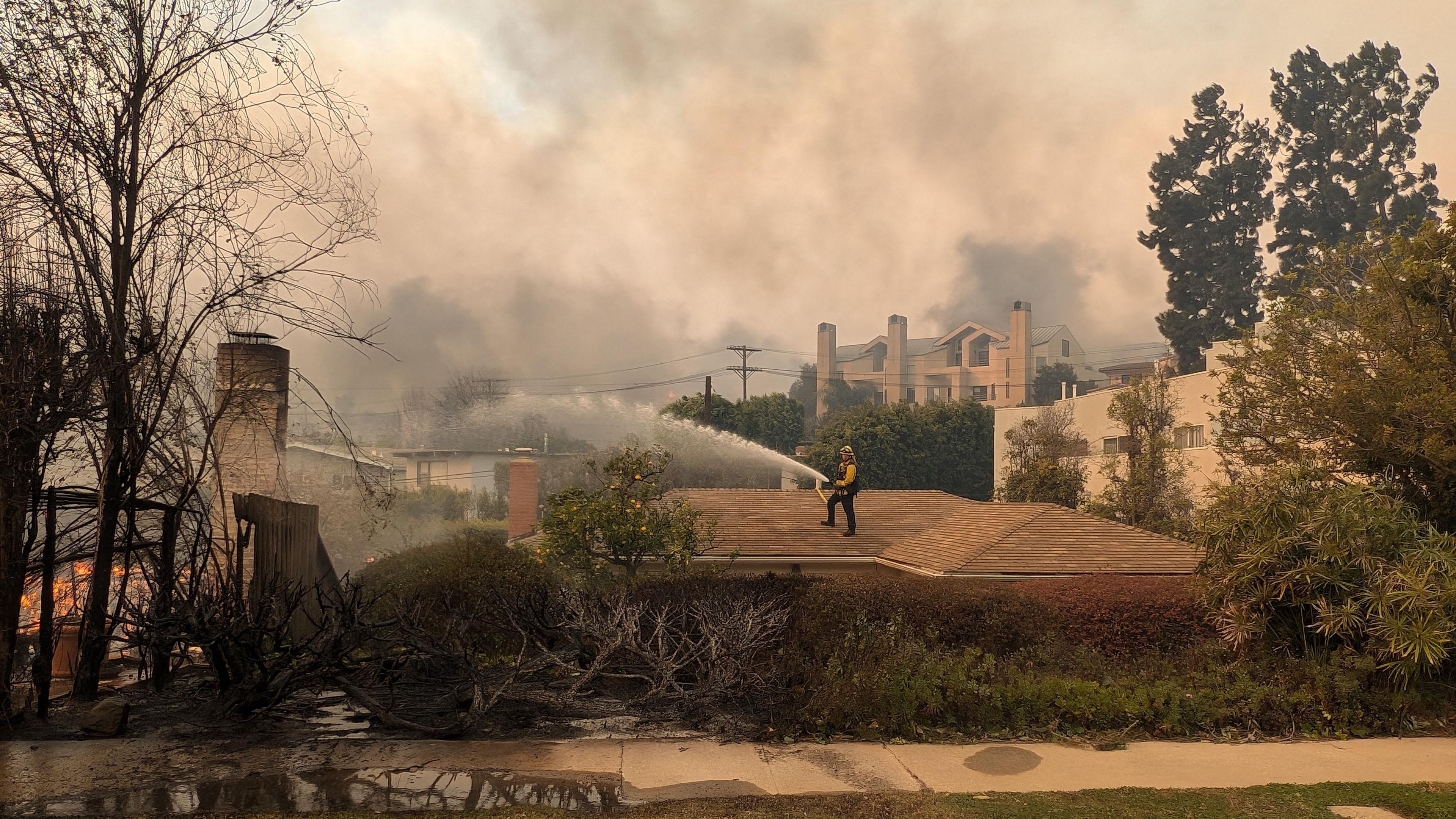
When we started to read about looting that was happening in the Palisades, we decided we would go and check on our house, and retrieve some of the irreplaceable belongings we'd left behind - photographs, journals and family jewellery.
We returned on Wednesday afternoon and were allowed to drive in because of my press credentials. When we reached Sunset Blvd, our road, we saw flames and fire engines and in front of our block of condos. My heart sank.
We drove past and saw our entire cluster of condos had been levelled.
We parked the car, and raced around the back. As soon as I saw the scene I doubled up like I'd been hit. Where about 20 condos once stood there was a pile of burning rubble. The firefighters, their faces covered in ash, kept apologising that they couldn't save our home. I was sobbing and thanking them for doing so much already.
I had to call and tell all of my neighbours that their homes were gone. I could barely get the words out.
Most of my village, I'd say about 90%, has been razed to the ground. It's all gone. I'm reeling from the shock, from the devastation and from everything my community has lost.
I'm planning to leave the city and stay with friends further north where it's safe and there's no smoke. I think it will be a while before I want to come back to LA.
It's surreal to think there's literally nothing to go back to. No home, no library, no stores, no kids' karate dojo, no theatre, no community centre. It's all just gone. I keep thinking "I should have grabbed more of my stuff before I fled".
But then I think back to one crystal-clear moment before I fled my house: standing in my bedroom, trying to choose which pair of earrings to take with me – a gold pair of hoops my sisters had gifted me for my 30th, or a pair of handmade abalone shell earrings that a Native American woman had given me after reporting on her community.
I told myself, out loud: "Only take what you need. What do you need?" And I realised in a moment of clarity, whilst I was frantically scanning all of my favourite clothes, shoes, and jewellery, that I really didn't need any of it.
I grabbed my grandmother's ring, passports, birth certificates, and left everything else to burn.